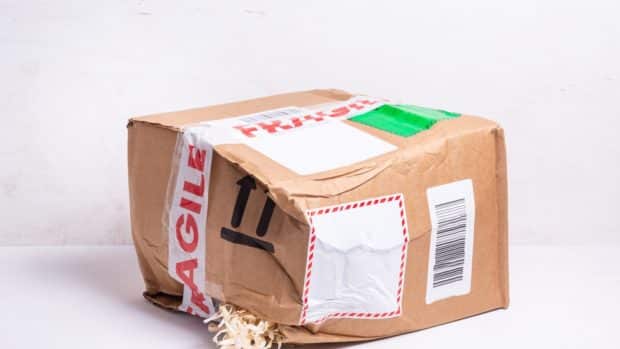New research conducted by independent research company, Opinion Matters, reveals that students are by the far the biggest returner of goods with 50 per cent of those surveyed returning anywhere between 11 and 25 per cent of purchases. Moreover, 42 per cent of students stated that they would only purchase from a retailer with a free returns policy and who make it easy to return goods. The research, commissioned by leading SaaS parcel data management platform company NetDespatch, polled over 1200 UK online shoppers to better understand consumer opinion on returning purchased items both online and in-store.
The survey was undertaken to understand how consumer habits are governed by the ease and convenience of returns and whether the widening of returns methods has resulted in a change in consumer returns behaviour. The research examined male versus female opinion, age demographics and working status.
Findings from the research showed that traditional locations for returning items are the most popular with consumers, with 78 per cent of those surveyed stating that they would choose to return items via the Post Office. 43 per cent said that they would wait at home for a courier to collect their parcel and 39 per cent stated that they would use their local convenience store. More modern returns options such as collect from work were surprisingly low with only 8 per cent of those surveyed having used this option, whilst 5.5 per cent chose to use a locker box and a mere 4 per cent of those surveyed used railway stations for returns. When asked what would be their preferred returns option, 12 per cent of respondents chose a click and collect option, i.e. local convenience store, garage, railway station or locker as their preferred return choice.
“The results from the survey clearly highlight the pressing need for retailers to further educate consumers about all the different returns
options that are now available to them,” said Matthew Robertson, Commercial Director, NetDespatch. “At NetDespatch we believe that this lack of understanding around returns means that consumers are opting for the more traditional options which are not always the most convenient or practical. In today’s 24/7 world, surely waiting at home for a courier to collect a parcel is time that consumers would prefer spending on more productive tasks.”
The study, “Many Happy Returns”, identified the following top UK consumer return habits and drivers associated with returns:
Frequency of returns in the last 12 months – 31 per cent of women, compared with 25 per cent of men, had returned between 1 and 10 per cent of the goods they had purchased online.
Ease of returns – 31 per cent of those surveyed stated that they would only purchase from retailers who have a free returns policy in place.
The top three most popular locations to return goods – 78 per cent stated the Post Office, 43per cent preferred to wait at home for a courier to collect and 39 per cent suggested that they preferred to return goods to the local convenience store.
Shoppers are not influenced by returns methods – 81 per cent stated that an increased number of returns methods does not influence their decision to return goods.
Consumers demand speed and transparency – 53 per cent of respondents said they expect to be refunded within 24-48 hours, whilst 47 per cent expect to be able to track their returns.
Switched-on millennials – Students are by far the biggest returner of goods with half (50 per cent) returning anywhere between 11 and 25 per cent of purchases. 42 per cent of students said they would only purchase from a retailer with a free returns policy and who make it easy to return goods.
Consistent returns – Half of those surveyed (50per cent) stated that they preferred to return their items at a specific time of day.
Additional purchases – When returning an item in store, nearly half (48 per cent) admitted that they are likely to purchase another item whilst there.
Overcoming cross-border perceptions – 57 per cent have different returns expectations when purchasing overseas as opposed to the UK. 36 per cent expect it to be more expensive, while 31 per cent expect it to be more complicated and 30% expect it to take longer to return online items.
Matthew Robertson concluded: “With the growth of cross-border eCommerce, investing in this area is essential for SMEs and bigger businesses alike. Many consumers are just becoming aware of the opportunities to buy outside the UK. Retailers need to offer broader options to allow these items to safely arrive in the country, and in good time, especially around shopping days such as Black Friday and Cyber Monday and with Christmas fast approaching.”








Share